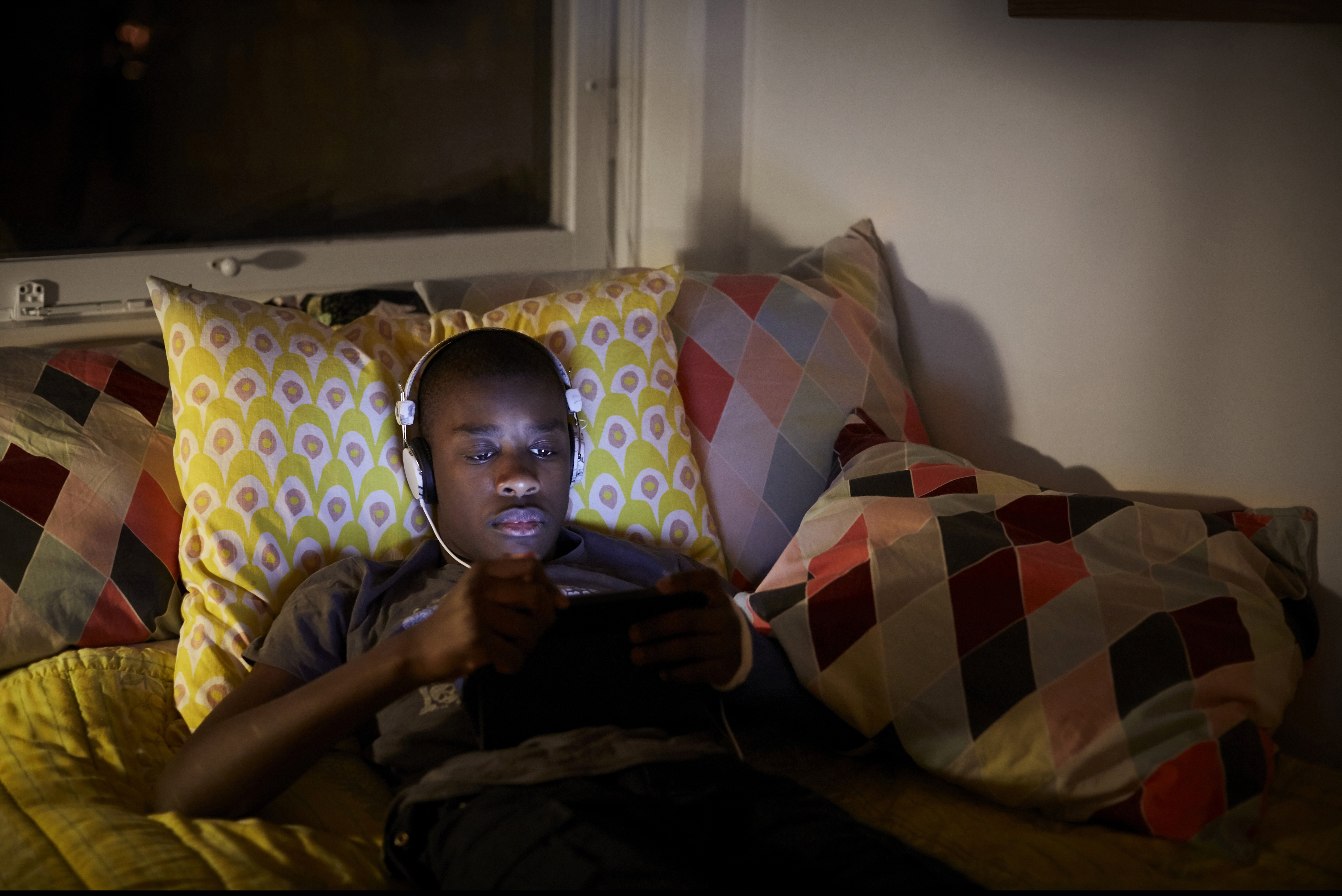During high school, teens are pulled in many directions – from sports, to clubs, to after-school activities and homework. It can be tough for teens to find the time to fit everything into their schedules. One thing that shouldn’t be sacrificed is sleep. In the short term, inadequate sleep can cause teens to have difficulty concentrating in school and increases the risk of auto accidents for teen drivers. Prolonged sleep problems over time have been linked to health problems like obesity and depression.
Even though it’s important for teens to get adequate sleep, results from our latest C.S. Mott Children’s Hospital National Poll on Children’s Health suggest that many teens are experiencing frequent sleep problems. Among 1,018 parents surveyed, 43 percent said their teen has trouble falling asleep or waking up and being unable to get back to sleep; this includes 25 percent with occasional problems (1-2 nights per week) and 18% with frequent sleep problems (3 or more nights per week).
The leading culprit for teen sleep problems? 56 percent of parents say it’s because their teens won’t get off their electronics, phones, or social media.

It’s easy to conclude that turning off electronics is the solution to teen sleep problems, particularly in the teen’s bedroom, so that the light exposure from screens does not disrupt traditional cues sent to the brain to wind down. And many parents in this poll indicated they had attempted this strategy. However, a look at the other leading causes of teen sleep problems explains why an “electronics ban” might not be so easy.
One in three parents say worry about school contributes to their teen’s difficulty falling or staying asleep. Increasingly, technology is integral to teens’ schoolwork. Rather than textbooks, many high school courses utilize online texts and resources as basic information sources. Rather than writing essays or assignments on notebook paper, many students are expected to use shareable word processing programs, and to upload assignments to the class site using specific software. Rather than working individually on assignments, many teens are working on group projects, using technology to facilitate discussion across group members about the content and presentation of the assignment. In short, a typical teen is using technology to perform well in school – and parent efforts to limit access to electronics may cause additional stress for a teen already worried about doing well in school.
Another common cause of teen sleep problems, according to 23 percent of parents, is worry about their social life. It’s easy to see how technology can fuel this concern, with teens monitoring social media for the latest gossip. Limiting teens’ access to social media at bedtime might allow some teens to escape from the constant influence of peers; for other teens, the lack of access might exacerbate their anxiety.
For teens with sleep problems, expert recommend something called sleep hygiene. This includes establishing a regular sleep schedule, with a set bedtime and wake time. Despite the known benefits of a consistent sleep schedule, it may be unrealistic for this age group: 43 percent of parents polled said their teen’s irregular schedule of homework and activities contributed to their sleep problems.
Over one quarter of parents of teens with sleep problems said their teen had tried some sort of medication to address sleep problems. Typically, the medication was an over-the-counter sleep medicine, such as NyQuilTM or a “PM” formulation of pain reliever or cold medicine or an over-the-counter antihistamine, such as Benadryl®. Less often, it was prescription sleep medication, such as Ambien® or RestorilTM. However, parents should be cautious about encouraging teens to use medication to address sleep problems that are related to unending technology, or to anxiety about school or social life. Consultation with the teen’s health care provider is essential.


